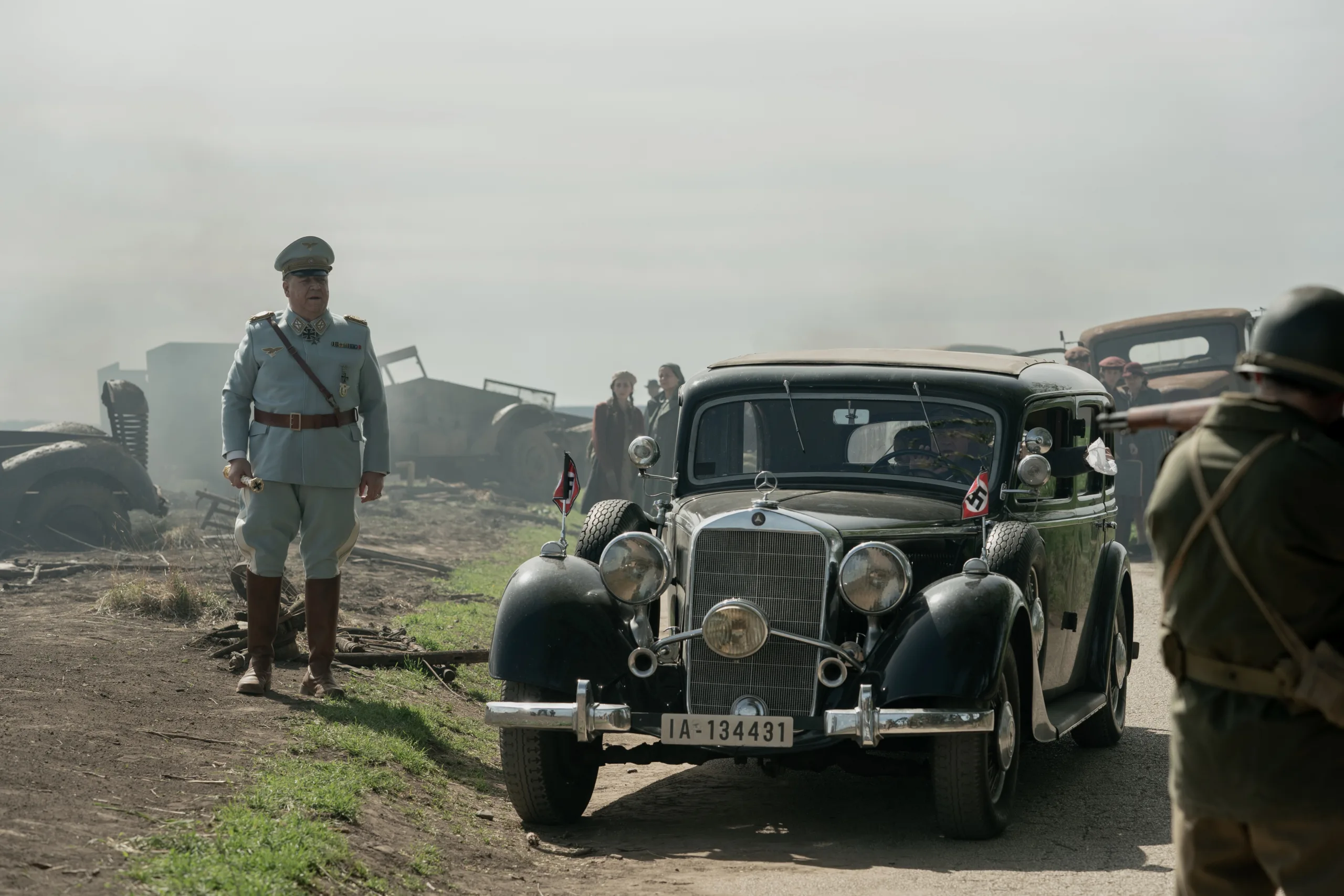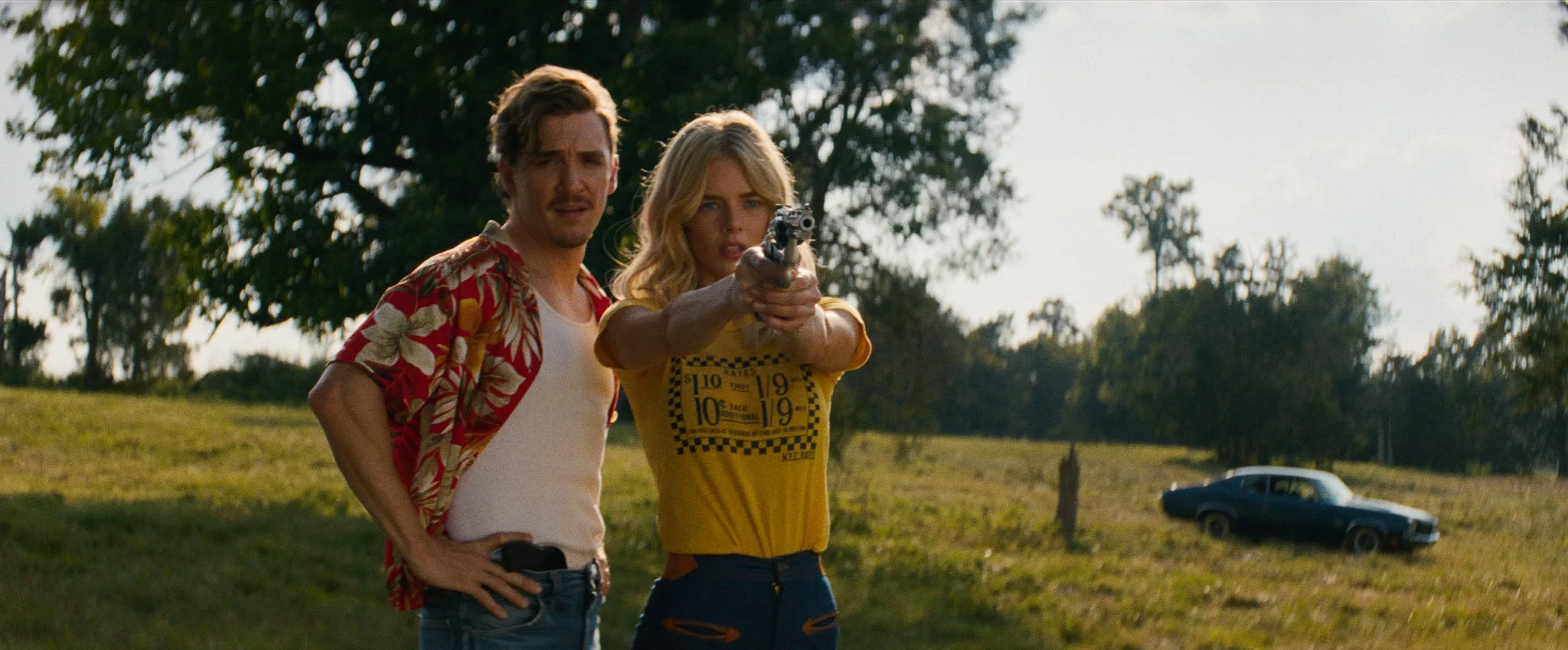I’m always delighted when films across various sections of a film festival end up tackling the same ideas but in different genres. There was a trio of basement-themed thrillers (“Good Boy,” “Bad Apples,” and, of course, “The Man in My Basement”) and no more than three films related to William Shakespeare’s Hamlet (two of which starred Joe Alwyn). By exploring similar subject matter through different genres it allows audiences to be impacted in different ways by the same idea. In this dispatch, films from Gala, Centrepiece, and Special Presentations all tackled how our pasts, if not properly reckoned with, can return to bedevil in pugnacious ways.
Director Yaniv Raz’s “Eternal Return” wasn’t the only high-concept romance film exploring what happens to the love of our lives once they pass, but it’s worth singling out as the only one that takes full advantage of Naomi Scott’s singing abilities and her ability to imbue a soulful melancholy into any line delivery. This is an old school fantasy film that doesn’t try to reshape the conventions of the genre it’s a part of, and that isn’t afraid to get saccharine to tug at the heartstrings. That works mainly in its favor as it’s obvious that talent behind and in front of the camera understands why this genre can be so successful.
Scott stars as Cass, who’s reeling from the death of her partner and bandmate, Julian (Jay Lycurgo), who perished after a horrific plane crash. She’s mired in grief until a chance encounter with cartographer Virgil (Kit Harington) and his mentor, Malcolm (Simon Callow), gives her hope she might be reunited with her lover. Virgil and Malcolm are convinced that they can craft a map of emotional landmarks of a person’s life; once someone steps back into an old location that holds significance, portals can open that allow people to re-experience formative moments for them. It’s a literal take on the ways stepping back into a place of significance can seemingly transport us to another place, and as Cass embarks with the two men on their journey, Virgil wrestles with his blossoming feelings for her.
It doesn’t always make for exciting viewing, as you can see the tropes this film will embody well before we reach the final destination, but if anything, narrative familiarity allows the character work to shine. It’s striking to see Harington play against type as an awkward and bookish map specialist. The charm is there, but his intensity is softened due to his quirky spirit, which makes for a great foil to Scott’s driven Cass. Callow also shines as a wingman to Virgil and brings a spirited “can-do” attitude that helps the audience buy into the believability of the gimmick the characters are chasing after. In contrast to Cass and Virgil, who are optimistic but cautious, broken by their pessimism around being able to dream, Malcolm brings a palpable zeal.
At its core, the film reminds us that “moving on doesn’t have to mean forgetting” and that the past, while important to remember, is something to make peace with instead of trying to recapitulate its greatest hits in the present. There’s a strength to this core message, which makes the film’s diversions into some questionable plot twists by the film’s end or certain erratic characterizations feel as if Raz was trying to overcompensate for a standard narrative. He should have had more faith that sometimes, a familiar story, well executed with charming stars, is all we need to come back home.

On a more serious note is James Vanderbilt’s “Nuremberg,” a film of prescient urgency and distinguished importance, but whose rote manner of delivery occasionally stifles its ambitions. Nonetheless, it’s an enlivening and effective courtroom drama, filled with performers who imbue their proceedings with gravitas and skill. Sometimes the strength of a film warrants a straightforward approach to how it tells its story, but given that this isn’t the first film made about what transpired (Stanley Kramer’s 1961 film also dramatized the trails “Judgement at Nuremberg” while Roger reviewed the documentary “Nuremberg: Its Lesson for Today”) it would have benefitted from an approach that didn’t just try to preach to its audience.
To Vanderbilt’s credit, rather than fall into the temptation to make what’s happened more melodramatic than needed, he places viewers right into the heart of darkness, trusting his actors to deliver the needed gravitas. When the film opens, it’s 1945. Hitler is dead, and in a strategic victory, the Allied Forces have captured the highest-ranking Nazi official left alive, Hermann Göring (Russell Crowe). While it would be far easier to simply hang Göring and the other imprisoned Nazi officials, U.S. Supreme Court Justice Robert H. Jackson (Michael Shannon, in one of his best performances, delivers stellar work here whose delicate gravitas anchors this film in its finest moments) wants to put Göring and his posse on trial. Jackson believes that by trying the Nazis on a global stage and framing their sentencing as a legal victory, it strips the glory that would come with an execution. In a moving monologue, Jackson articulates how, after Germany was forced to “crawl” after World War I, it gave the country an opportunity to grow not in strength but also in animosity. If they’re not beaten the right way, Jackson worries the world wouldn’t be able to beat them a “third time.”
As Jackson and his team, including the likes of lawyer David Maxwell Fyfe (Richard E. Grant, ever reliable in any film he’s in but his gravelly steeliness is especially welcome in this project) prepare for the trial, the army has psychiatrist Douglas Kelley (Rami Malek) speak with the prisoners before their trial to evaluate if they’re not only fit for trial, but also to get to the heart of Nazi psychology.
In this regard, the film is a series of conversations and debates, whether it’s in sessions, as we witness various permutations of the film’s all-star cast debate each other (Kelley debates Göring, Jackson grills Göring on the stand, etc.). It’s a showstopping showcase for all involved. Crowe gives a towering, subtly frightening performance as Göring. He’s dangerously charming, acting with humility and suave even while his egotistical nature is so baked in that he can’timagine a possibility where he’s convicted and on trial. There’s also a seductive layer to his confidence, as if he’sbeckoning all those cross-examining him to consider the appealing aspects of Nazi ideology. Malek does serviceable work as Kelley, as the character is meant to act as a vessel to Göring’s sentiments. Kelley’s work is two-fold as he hopes to eventually write a book about his experience, and his naked ambition for the possibility of fame clashes with the ethics of his vocation. He thinks he can dance with the devil because he has him on a leash, not realizing that he’s already been devoured by an adversary who’s thinking ten moves ahead.
During the film’s titular trials, Vanderbilt opts to include real footage of the horrors of the concentration camps. We become, for a moment, just like those in the trial room as we witness photo after photo and video after video of the truly barbarous and inhumane extermination enacted by the Nazis. It’s the most uncomfortable part of the film and one of the most moving, and while I see its necessity, it’s one of the few times where such unvarnished brutality is too content with recapitulation. As Jackson says during the trial, “what happened cannot bear to be ignored because it cannot bear to be repeated.” Vanderbilt’s film ensures that we can’t ignore what happened, but what’s missing is space for reflection on how what we see has, in fact, already happened again and again. There’s an urgent, timely, and powerful message “Nuremberg” offers; I just wonder how many more it will convince through its stilted approach who aren’t already on Jackson’s side.

Then there’s “Carolina Caroline,” a romantic crime thriller whose unique blend of sexiness and tragedy sizzles off the screen. Of the three projects featuring Samara Weaving that have been released this year, this is by far the strongest, as director Adam Carter Rehmeier and writer Tom Dean finally gift her material that takes full advantage of her ability to shift between vulnerability and vigor at a moment’s notice. Throw in a scene partner like Kyle Gallner and a smooth-as-whiskey score from Christopher Bear, and it all makes “Carolina Caroline” a film that sucker punches you from its first frame.
When we meet the titular Caroline, she embodies the restlessness of feeling obligated to one’s hometown while desiring to escape it. While caring for her single father (Jon Gries), she finds her ticket to freedom in Kyle Gallner’s Oliver. The two strike up a romance as Oliver teaches her his criminal ways; as their love crescendos, so does the scale of their crimes.
“Carolina Caroline” is full of stick-ups, shoot-outs, and heists, but Dean’s script and Rehmeier’s direction give us characters we care about. At the emotional center of Caroline is her reeling with abandonment by her mother, and the film calls into question the health of her trying to fill that void through seeking violence and thrills. There’s a grainy, hand-held camera aesthetic as the film progresses, almost as if Oliver and Caroline are recording home videos of their crimes to pass on to family members later. We know watching that as much as Caroline and Oliver are riding high on their robberies, the crash has to come somehow, and there’s a skittish tension as we wait for their downfall to come.
Weaving dazzles in one particular sequence, where, after someone is killed, Caroline realizes the terrifying endgame of the life of crime she’s embarked on. She’s reached the point of no return, and that disillusionment is harrowing and disquieting. It’s these moments of character development amidst the spectacle that make “Carolina Caroline” a rip-roaring, tragic, joyride.
















